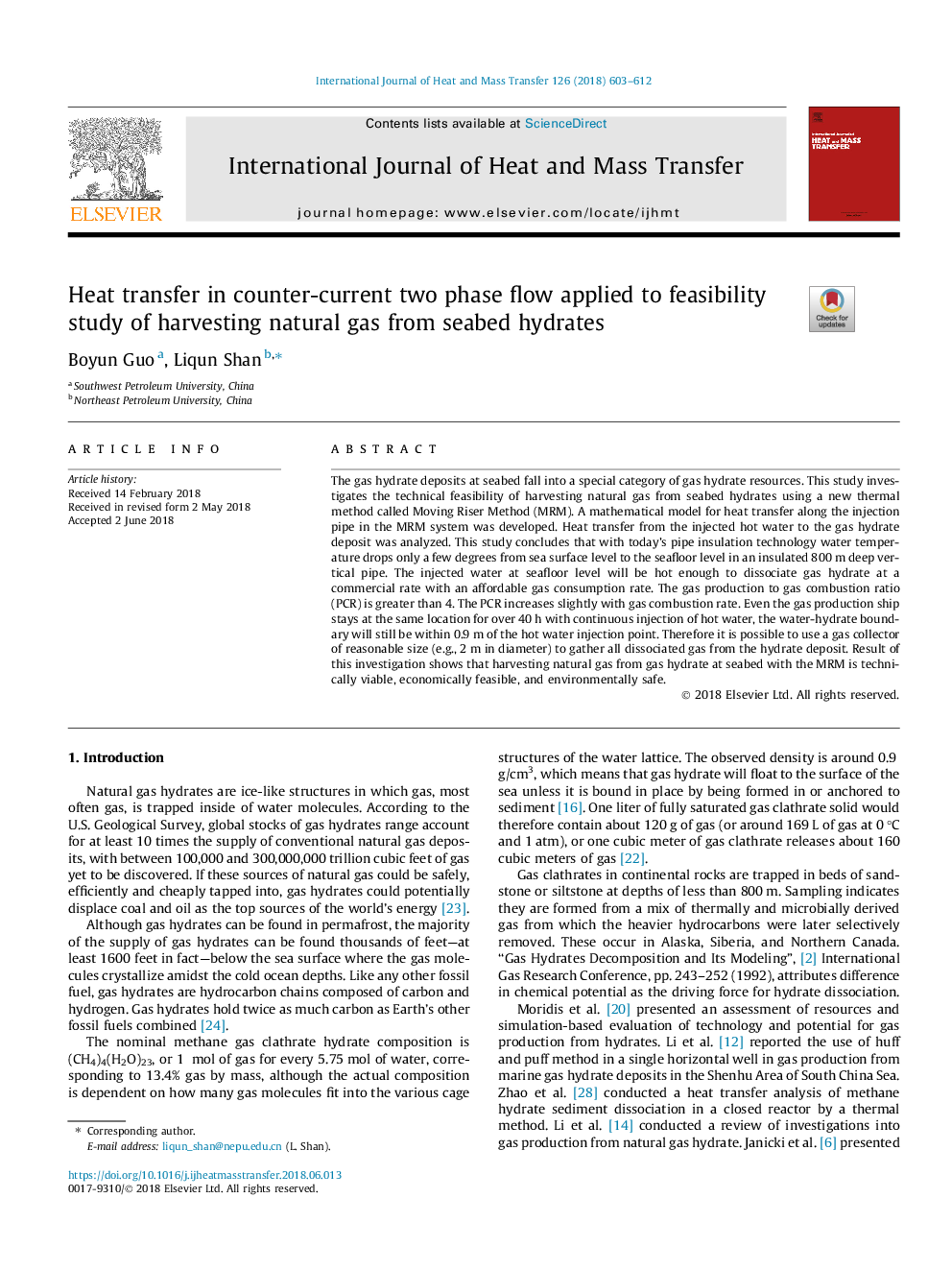| کد مقاله | کد نشریه | سال انتشار | مقاله انگلیسی | نسخه تمام متن |
|---|---|---|---|---|
| 7053895 | 1458013 | 2018 | 10 صفحه PDF | دانلود رایگان |
عنوان انگلیسی مقاله ISI
Heat transfer in counter-current two phase flow applied to feasibility study of harvesting natural gas from seabed hydrates
ترجمه فارسی عنوان
انتقال حرارت در جریان دو مرحله ای جریان متقابل، به مطالعه امکان سنجی برداشت گاز طبیعی از هیدرات های دریایی اعمال شده است
دانلود مقاله + سفارش ترجمه
دانلود مقاله ISI انگلیسی
رایگان برای ایرانیان
موضوعات مرتبط
مهندسی و علوم پایه
مهندسی شیمی
جریان سیال و فرایندهای انتقال
چکیده انگلیسی
The gas hydrate deposits at seabed fall into a special category of gas hydrate resources. This study investigates the technical feasibility of harvesting natural gas from seabed hydrates using a new thermal method called Moving Riser Method (MRM). A mathematical model for heat transfer along the injection pipe in the MRM system was developed. Heat transfer from the injected hot water to the gas hydrate deposit was analyzed. This study concludes that with today's pipe insulation technology water temperature drops only a few degrees from sea surface level to the seafloor level in an insulated 800â¯m deep vertical pipe. The injected water at seafloor level will be hot enough to dissociate gas hydrate at a commercial rate with an affordable gas consumption rate. The gas production to gas combustion ratio (PCR) is greater than 4. The PCR increases slightly with gas combustion rate. Even the gas production ship stays at the same location for over 40â¯h with continuous injection of hot water, the water-hydrate boundary will still be within 0.9â¯m of the hot water injection point. Therefore it is possible to use a gas collector of reasonable size (e.g., 2â¯m in diameter) to gather all dissociated gas from the hydrate deposit. Result of this investigation shows that harvesting natural gas from gas hydrate at seabed with the MRM is technically viable, economically feasible, and environmentally safe.
ناشر
Database: Elsevier - ScienceDirect (ساینس دایرکت)
Journal: International Journal of Heat and Mass Transfer - Volume 126, Part B, November 2018, Pages 603-612
Journal: International Journal of Heat and Mass Transfer - Volume 126, Part B, November 2018, Pages 603-612
نویسندگان
Boyun Guo, Liqun Shan,
